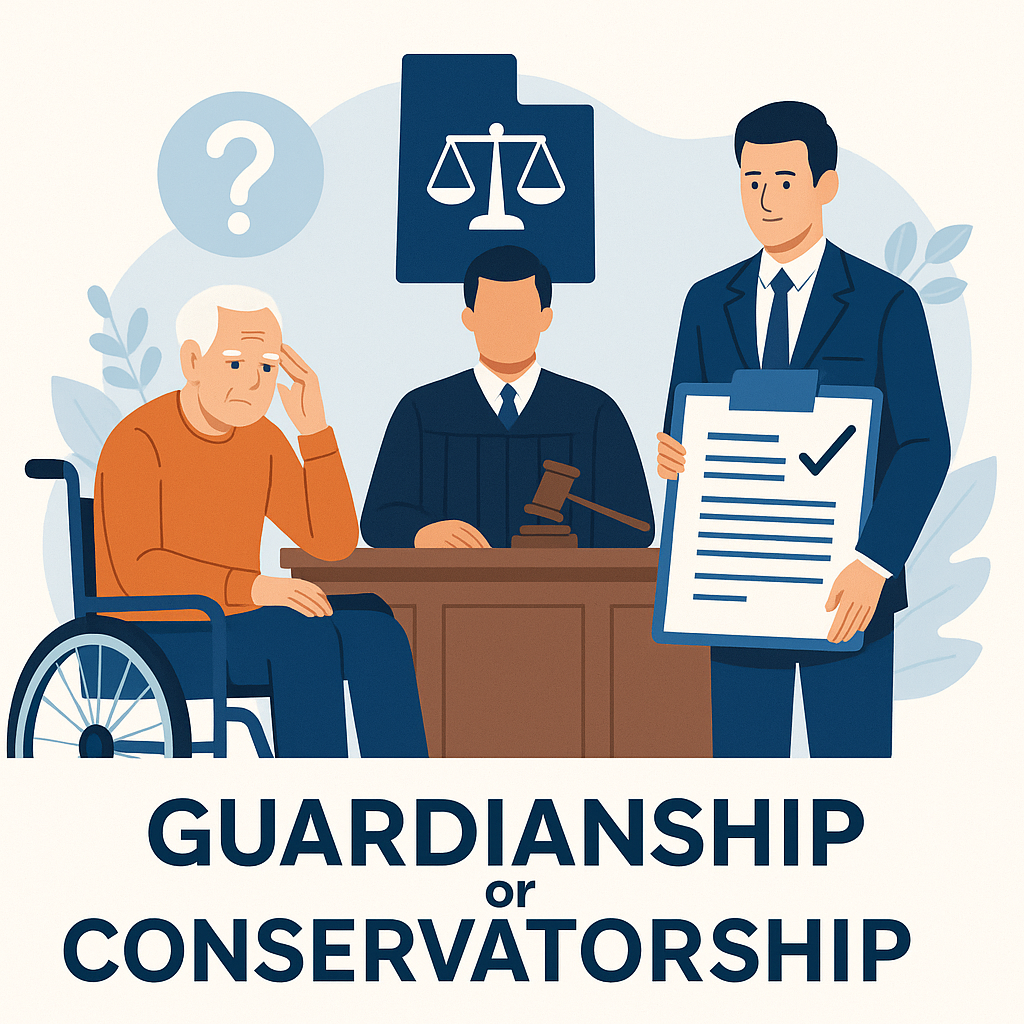What is Adult Guardianship or Conservatorship in Utah?
Plain-English guide to roles, capacity evidence, petitions, reporting, and alternatives
Introduction. When an adult in Utah loses the ability to make personal or financial decisions, the court can appoint a guardian or conservator to help. Understanding when this happens, what powers these roles carry, and what alternatives exist is essential before starting the process. This guide explains Utah’s approach to adult guardianship and conservatorship, how to petition, and what responsibilities follow once appointed.
Guardian vs. Conservator: The Core Difference
In Utah, a guardian makes decisions about personal well-being such as medical care, housing, and daily support. A conservator manages money, property, and financial affairs.
One person can serve in both roles, but courts prefer to limit authority to what is truly necessary. Guardianship or conservatorship is a last resort when no lesser option can protect the person’s interests.
Evidence of Incapacity: How the Court Decides
Before appointment, the court must find that the person lacks capacity to make informed decisions. Utah law requires clear medical or psychological evidence, often including physician evaluations or sworn statements.
Family members, friends, or professionals may testify. The alleged incapacitated person has the right to legal representation and to attend the hearing.
The Petition, Notice, and Hearing Process
The process begins with a petition in Utah District Court explaining why guardianship or conservatorship is needed. All interested parties, including the person affected, must receive formal notice.
At the hearing, the judge reviews the evidence, hears testimony, and decides whether to appoint a guardian or conservator. If granted, the court issues Letters of Guardianship or Letters of Conservatorship, officially authorizing the person to act.
Bonds, Inventories, and Annual Reports
Once appointed, conservators and any guardian handling money must follow strict safeguards to protect the person’s assets and well-being.
Courts review these filings closely to prevent abuse or neglect and to ensure decisions remain in the person’s best interest.
Limited Orders and Alternatives to Guardianship
Utah courts aim for limited guardianships or conservatorships whenever possible, granting only the powers necessary. Judges often consider less restrictive tools such as:
- Power of Attorney (POA) – Voluntary authority for financial or medical decisions.
- Supported Decision-Making Agreements – The person keeps control with structured help from trusted supporters.
- Representative Payees or Trusts – Manage government benefits or funds without full conservatorship.
Using an alternative can preserve independence and reduce the complexity of court oversight.
Ending or Modifying a Guardianship or Conservatorship
These orders do not have to last forever. Utah law allows modification or termination if the person regains capacity, passes away, or circumstances change.
Any interested party can move to review the arrangement. The court evaluates current needs and whether continued oversight is required.
Video and Social Learning Hub
YouTube Videos
Need Help Navigating Guardianship or Conservatorship?
Adult guardianship and conservatorship exist to protect those who cannot make informed decisions, but they come with serious responsibilities and court oversight. Always explore less restrictive options first and consult a qualified Utah attorney for advice about your specific situation.
Talk to a Utah AttorneyFor more plain-English legal guidance, stay updated with Utah Law Explained, explore our mission on the About Us page, or connect with trusted counsel like Gibb Law Firm.
